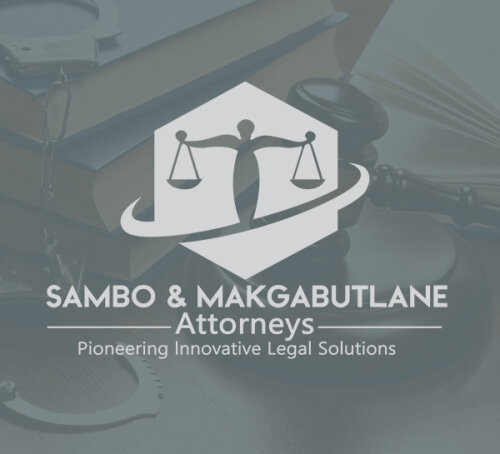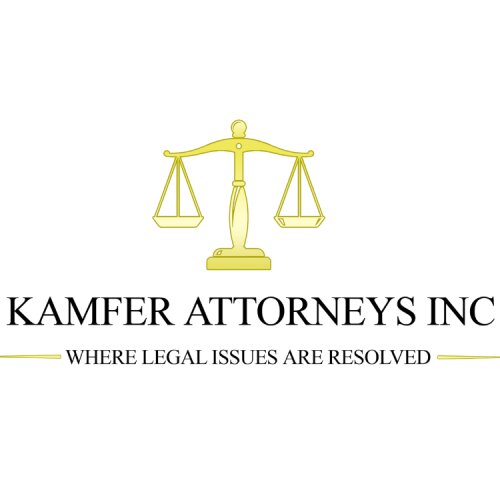Best Father's Rights Lawyers in Pretoria
Share your needs with us, get contacted by law firms.
Free. Takes 2 min.
Free Guide to Hiring a Family Lawyer
List of the best lawyers in Pretoria, South Africa
About Father's Rights Law in Pretoria, South Africa
In Pretoria, South Africa, Father's Rights are primarily concerned with ensuring that fathers can maintain a meaningful relationship with their children following a separation or divorce. This area of law recognizes the importance of both parents in a child's life, irrespective of the marital status of the parents. The law generally supports joint custody arrangements wherever feasible, emphasizing the child's best interests. Fathers are also entitled to be involved in significant decisions concerning their child's education, health, and overall well-being.
Why You May Need a Lawyer
There are several situations in which seeking legal advice may be necessary for asserting or defending Father's Rights in Pretoria. Common scenarios include disputes over custody and visitation rights, disagreements about child support payments, cases where paternity needs to be established legally, or situations involving allegations of abuse or neglect. Legal guidance is important to navigate these complexities and to ensure fair and just outcomes for both the father and the child.
Local Laws Overview
Father's Rights in Pretoria are largely governed by national legislation, including the Children’s Act 38 of 2005 and the Maintenance Act 99 of 1998. The key considerations in these laws are the best interests of the child, which take precedence over the parents' rights. These laws encourage parental responsibilities and rights agreements and emphasize mediation as a means to resolve disputes. They also define the roles of primary caregivers and allow for court interventions when agreements cannot be reached amicably between the parties involved.
Frequently Asked Questions
What legal rights do fathers have in Pretoria regarding custody?
Fathers have the right to apply for custody or co-custody. The Courts in Pretoria prefer arrangements where both parents share responsibilities, as long as it serves the child's best interests.
How can fathers establish paternity in South Africa?
Paternity can be established voluntarily if both parents agree, or through a court order, which may require DNA testing to confirm biological parentage.
What should I do if the mother of my child denies me access?
It's recommended to first attempt mediation. If that fails, you may apply to the court for a parenting plan or access rights enforcement order.
Are fathers entitled to child support payments?
Yes, fathers who are primary caregivers can apply for child support from the mother, reflecting their parental responsibilities and their child's needs.
What is a parenting plan, and do I need one?
A parenting plan is a written agreement outlining the roles and responsibilities of each parent. It is recommended for clarity and can be made legally binding through the court.
Can a father apply for full custody?
Yes, a father can apply for full custody if it’s in the best interest of the child, especially in cases where the other parent is deemed unfit.
What factors does the court consider in custody disputes?
The court prioritizes the child's best interests, stability, the parents' ability to care for the child, and the child's own preferences, when appropriate.
How does the Children's Act affect fathers' rights?
The Children's Act emphasizes shared responsibility and aims to eliminate discrimination based on marital status, granting equal responsibilities and rights to both parents.
Can grandparents apply for visitation if the father does not have custody?
Yes, grandparents can apply for visitation rights under the Children’s Act if it serves the child's best interests.
What happens if a father does not pay child support?
Failure to pay child support can result in legal enforcement actions such as garnishment of wages, attachment of property, or other penalties prescribed by the Maintenance Court.
Additional Resources
There are several resources and organizations that can assist with Father's Rights in Pretoria, including the Family Advocate’s Office, Legal Aid South Africa, and the Centre for Child Law. These institutions provide guidance and support to ensure that fathers are well-informed of their rights and responsibilities. Additionally, private legal practitioners specializing in family law can provide tailored advice and representation.
Next Steps
If you require legal assistance regarding Father's Rights, it’s advisable to consult with a lawyer specializing in family law in Pretoria. Begin by gathering all relevant documentation, such as birth certificates, proof of paternity (if applicable), and any previous court orders related to your case. Contact a legal service provider to discuss your situation, explore options for legal support, and develop a strategy that best suits the interests of your child and yourself. Use mediation services where possible to settle disputes amicably, reserving court intervention as a last resort.
Lawzana helps you find the best lawyers and law firms in Pretoria through a curated and pre-screened list of qualified legal professionals. Our platform offers rankings and detailed profiles of attorneys and law firms, allowing you to compare based on practice areas, including Father's Rights, experience, and client feedback.
Each profile includes a description of the firm's areas of practice, client reviews, team members and partners, year of establishment, spoken languages, office locations, contact information, social media presence, and any published articles or resources. Most firms on our platform speak English and are experienced in both local and international legal matters.
Get a quote from top-rated law firms in Pretoria, South Africa — quickly, securely, and without unnecessary hassle.
Disclaimer:
The information provided on this page is for general informational purposes only and does not constitute legal advice. While we strive to ensure the accuracy and relevance of the content, legal information may change over time, and interpretations of the law can vary. You should always consult with a qualified legal professional for advice specific to your situation.
We disclaim all liability for actions taken or not taken based on the content of this page. If you believe any information is incorrect or outdated, please contact us, and we will review and update it where appropriate.
















